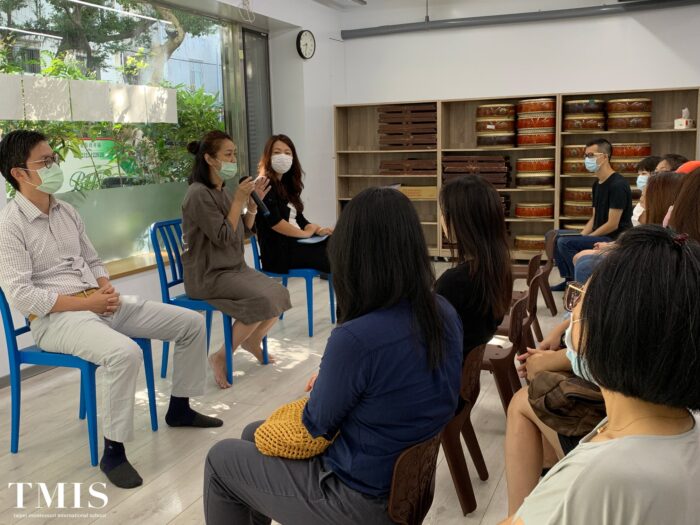Parent’s Sharing Session Part 3: Children’s Interpersonal Relationship Management
On 9/22, TMIS invited the fathers and mothers of 3 second-grade children to share their children’s experience in interpersonal relationships.
–
Parents shared several stories about when children face situations of interpersonal relationships: “After going to elementary school, children begin to pay attention to what their peers say.
The child was ridiculed by her peers at school because of her body shape.
When encountering such a thing, we can first give our children much love,
then engage her to discuss and cope with it. For example, I told her that we can buy more black slim-fitting clothes, or tell her, because you are much taller than others, and guide the children to think positively…”
Parents shared two views:
* Empathy: caring with empathy, children will be more willing to share their thoughts
* Filter and clarify: calmly analyze things and become the strongest supporters for children
–
“Don’t take every child’s interpersonal interaction too seriously!
In a pure school environment, children are learning the progress and retreat, right and wrong between interpersonal relationships.
We need to allow children to learn and adapt to different aspects of interpersonal interaction. If children cannot even adapt to the small things at school, they will face more frustrations in the larger society in the future.
So I just ask my children, do you like this school? Do you like studying in this place?
The child said I like it! I said: Then cherish it!
In fact, as long as they are given proper guidance, children will adapt in their own way…”
Parents shared two views:
*Believe in children: proper guidance, let children adapt in their own way
*Parent-teacher communication: immediate processing will not cause unnecessary misunderstandings
–
At the end of the lecture, Ms. Eva, Dean of Ms. Lam School, also shared two key points of human relationship management:
1. Every parent has his own point of view when facing interpersonal relationship management-such as hope that children are polite or have boundaries…
Think about what you think is the most important point of view, so as to guide the child, he will face his interpersonal relationship with more direction and guidelines
2. Through the process of dialogue with children, develop children to be able to analyze things in multiple ways when facing incidents, generate multiple perspectives, and build up the cultivation of interpersonal relationships between themselves and others.





